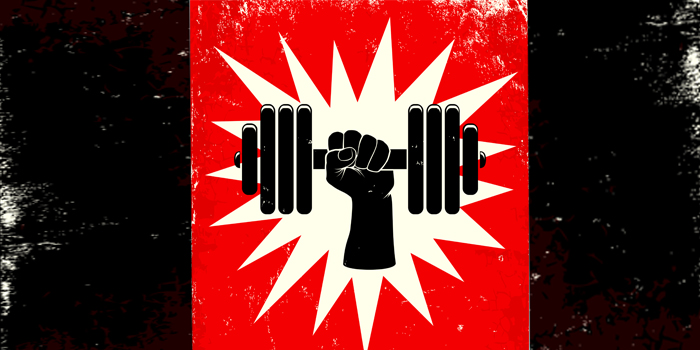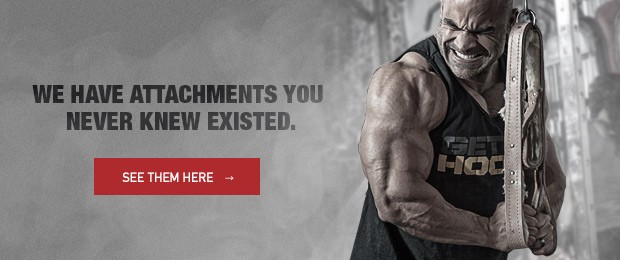
Historically speaking, mankind always seems drawn to answering the question - Who is the Greatest? There is something inherently attractive about greatness whereby debates rage over to whom is this quality is most attributable. It’s played out in numerous areas of society from athletics, business, philanthropy, politics, etc. Muhammad Ali’s recent passing evoked the repeated phrase ascribed to him - The Greatest. I’m often confronted with the debate within the bodybuilding community of who is the greatest - Arnold Schwarzenegger, Lee Haney, Ronnie Coleman? But more often than not, I’m left pondering what determines greatness. I believe it’s more than athletic prowess or shredded muscularity that flows with beautiful symmetry and balance.
Leveraging Greatness
At Muhammad Ali’s passing, newsstands were stocked full of magazines bearing his image. Few disputed the fact that Ali was the greatest boxer of all time, but his influence beyond the ring via social activism perhaps points to the real source of his inspiration for many. Leveraging his boxing notoriety and international platform, he championed and brought awareness to things such as civil rights issues, the Special Olympics and in the end: Parkinson’s disease. Herein we see a glimpse of what I believe garners greatness.
RECENT: The Five Factors of Being Stage Ready
When people of power, privilege or positions of influence care and engage injustice, therein lies the seeds of true greatness. You see, simply refraining from the exploitation of the marginalized and destitute wasn’t enough for Ali. He stepped into the middle of social activism as an agent of change and at times risked controversy. I believe those exhibiting authentic greatness consider others more significant than themselves and leverage their status for the benefit of the underprivileged.
Motivated to Greatness
While something magnetically tends to draw us to greatness, more often than not it’s based on self-seeking motives. Our hearts crave positions of influence more so for personal reasons than a heart's desire to affect change. Regardless of religious worldviews, I personally appreciate the genuineness of a multitude of the biblical narratives. Specifically in the Book of Luke when the disciples begin arguing amongst themselves as to which of them would be the greatest. Never mind that their debate came moments after Jesus predicts his own death. His closest friends were really concerned about him in that moment, right? Ironically, they were also a little preoccupied debating their own hierarchy on the greatness scale.
Before we go pointing a judgmental finger at them, I believe it’s safe to say that in the hidden places of our own hearts and minds, we too envy those of power and privilege for self-seeking reasons. I’m not excluding myself here either, so before we condemn the disciples, let’s look at Jesus' response:
“Jesus, knowing their thoughts, took a little child and had him stand beside him. Then he said to them, ‘Whoever welcomes this little child in my name welcomes me; and whoever welcomes me welcomes the one who sent me. For it is the one who is least among you all who is the greatest.’”
Culturally speaking at the time in which Jesus lived, children occupied a very low rung on the social ladder. In fact, children were categorized with servants — meaning they possessed no rights, status, or independent identity. They were the marginalized and powerless, yet Jesus welcomed them with open arms and calls us to do the same for people, particularly of low status, if we are motivated to greatness.
Greatness in Perseverance
Missionaries of Charity is an organization founded in the 1950’s and lead by Mother Teresa. In her words, the purpose and mission of the ministry sought to care for, "...the hungry, the naked, the homeless, the crippled, the blind, the lepers, all those people who feel unwanted, unloved, uncared for throughout society, people that have become a burden to the society and are shunned by everyone." What’s most inspiring to me about Mother Teresa isn’t so much the vast number of people she selflessly served through various ministries she founded, but how she started and more importantly how she persevered.
Yes, in the end she garnered recognition from an international array of charitable organizations, government officials, the Catholic Church and even received the Nobel Peace Prize. She leveraged all of those honors to draw attention to those she felt called to serve — the poor, hungry, destitute, sick and dying. However, she began with nothing and initially found herself begging for food to support her charitable work. I’m sure the lure of returning to the warmth and comfort of the convent was a very real temptation and reality. However, she chose to persevere in the face of difficult circumstances while serving in near obscurity and anonymity.
Fingerprints of Maturity
Rarely is greatness associated with immaturity, and rightfully so. Self-sacrifices are marks of maturity and it’s no surprise these very same qualities typify evidence of greatness. This is what I love about the elitefts motto — Live. Learn. Pass On. It recognizes that we all have a life to live in which lessons are learned through both hard and easy seasons, but at the end of the day, knowledge cannot and should not terminate on us. We have an obligation to pass it on. We have to help the next guy or gal, young or old, rich or poor, black or white, weak or strong. We have to pass it on...and not just to those in positions of power, but to the underprivileged.
This is why elitefts is bursting with free content and draws no distinction between those to whom it affords access. Many of us wield more power and influence than we’re fully aware. It’s time to start making conscious efforts to step into the fray and inconvenience ourselves for the betterment of others. This is the hallmark of true greatness and often times it takes nothing more than a word of encouragement to a fellow human being. An act of kindness which goes largely unnoticed to the rest of the world. Who can you encourage today?













1 Comment